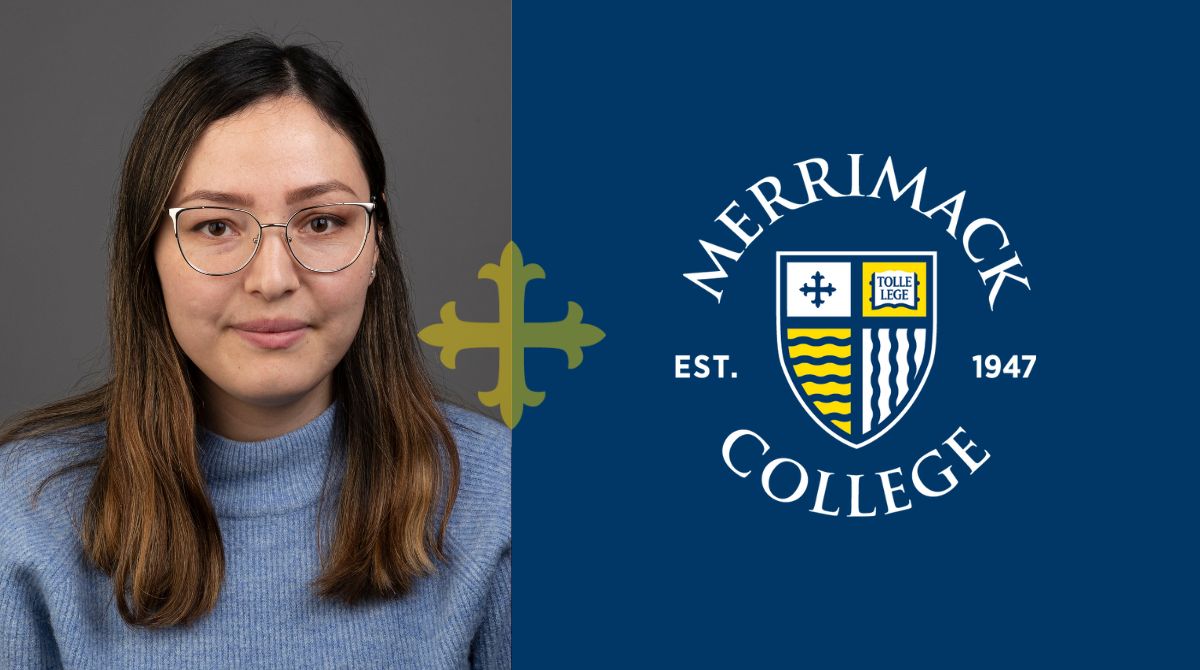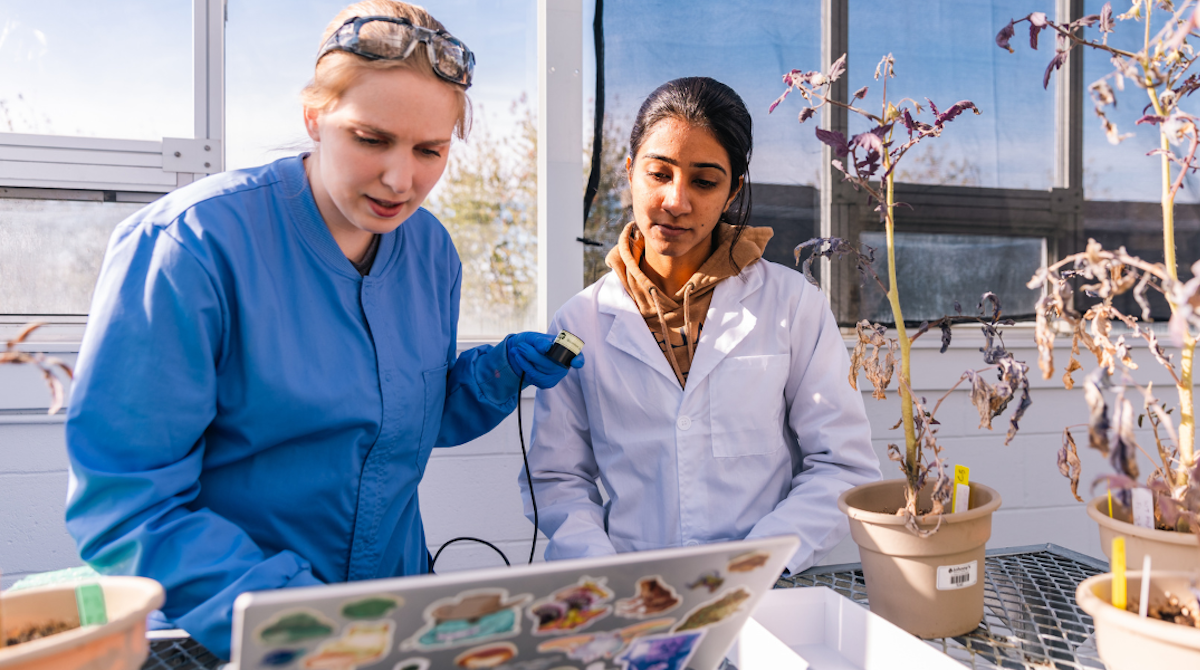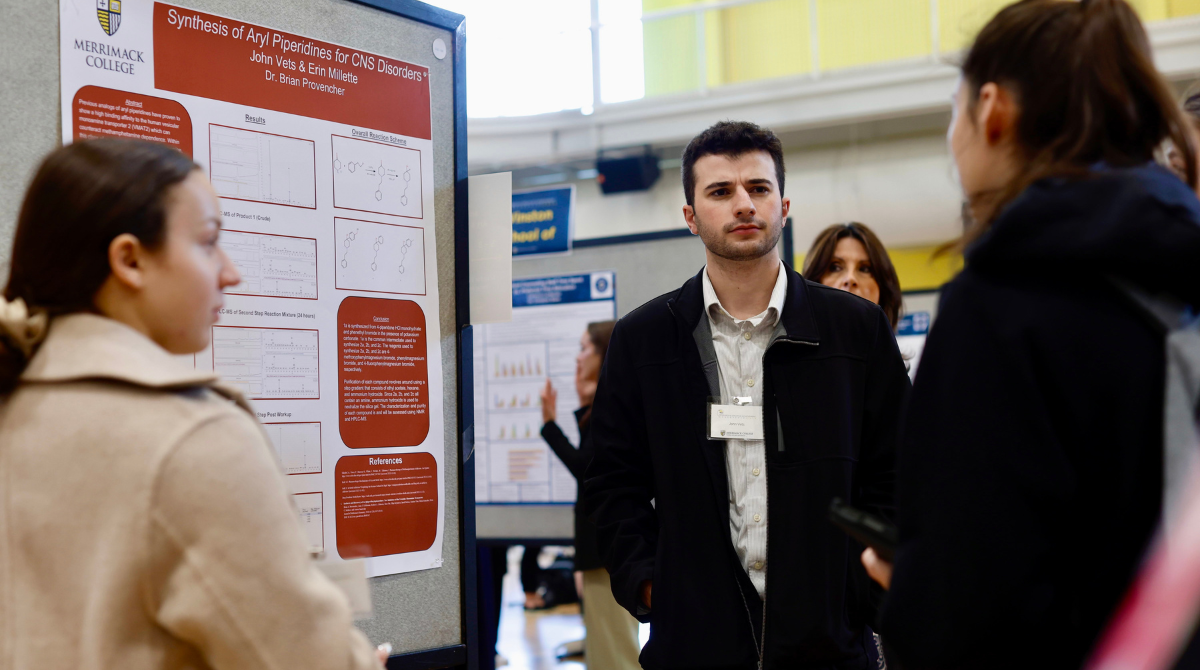It’s been a long and winding road for Zahra Ahmadi M’25 to get from Afghanistan to Merrimack College, but now that she’s here, she can’t imagine being anywhere else.
“It’s a lot of new experiences,” she said of her time at Merrimack. “American education is awesome. It’s completely different from my country’s education. I’m very happy to have the opportunity to pursue my master’s degree here, especially at Merrimack College.”
Ahmadi is enrolled in Merrimack’s two-year social work graduate program. She also has a fellowship as an academic success coach.
“We are trying to help students, especially freshmen, transition into higher education,” she explained.
In 2016, Ahmadi received her bachelor’s degree in sociology from Herat University in Afghanistan. After graduation, she began working for the Danish Refugee Council, a humanitarian nonprofit, at its Afghanistan branch. It was there Ahmadi learned how vital social work can be.
“While working at the Danish Refugee Council, I realized that there are gaps in humanitarian agencies’ service delivery in the field which required more professional social workers to improve community participation,” she said.
Because of this experience, Ahmadi started applying to graduate programs for social work with the hopes a master’s degree will allow her to contribute to designing refugee assistance projects that focus on cultural sensitivities.
In 2021, the Taliban took control of Afghanistan. As an advocate for women’s and children’s rights and an employee of a foreign institution, Ahmadi’s life was in danger under the new regime. She rushed to Kabul Airport when she received an email from the U.S. government that she was cleared to evacuate the country.
“It was chaos,” she said once she arrived. “Thousands went to Kabul Airport. We didn’t have a lot of food, water or basic services. As a single woman, it was very difficult to access food. There were a lot of children. We didn’t have any place to sleep – we were just sitting on the ground for five days and five nights.”
Eventually, Ahmadi arrived at a military camp in Virginia. She was completely on her own without any place to stay – her parents and brother had already fled to Iran and her sister and niece escaped to Pakistan.
“I saw in my contact list that I had one interview with an American professor,” she explained. “I contacted her and I told her I was in the United States and I don’t know where to go. She told me that I could come to Massachusetts. I told her that I’m interested in social work and she said I could apply for a fellowship (at Merrimack College).”
After graduation, Ahmadi hopes she can make a difference in refugees’ lives here in the United States.
“I know how hard it is here, especially around cultural sensitivities, language barriers and transportation,” she said. “There is a big need for social work, especially in human services. It’s very necessary.”





